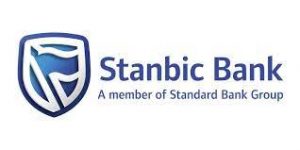Stanbic IBTC Bank Nigeria PMI(R): PMI Highest For Over Two Years Amid Stronger Demand

Stanbic IBTC Bank Nigeria PMI(R): PMI Highest For Over Two Years Amid Stronger Demand
Advertisements

February PMI® data for Nigeria’s private sector pointed to a substantial improvement in business conditions. Quicker expansions in output, new orders, employment and purchasing underpinned the latest improvement.
At the same time, firms were hopeful that higher investments and customer numbers would support output growth over the course of the coming year. Stanbic IBTC noted that on the cost front, unfavourable exchange rate movements, higher prices for raw materials and rising wages led to a substantial rate of input price inflation. Subsequently, selling charges were lifted sharply.
The headline figure derived from the survey is the Purchasing Managers’ Index™ (PMI®). Readings above 50.0 signal an improvement in business conditions on the previous month, while readings below 50.0 show a deterioration.
At 57.3 in February, up sharply from 53.7 in January, the latest expansion pointed to a robust overall improvement in business conditions. Moreover, the latest figure signalled the strongest expansion since November 2019.
A key driver of growth was the joint-quickest rise in new orders for over two years. Firms mentioned a general improvement in demand from both domestic and international markets.
To cater for higher orders, firms lifted their output levels, and for the fifteenth month in succession. Sub-sector data revealed a broad-based expansion with wholesale & retail recording the strongest increase.
Services, agriculture and manufacturing followed, respectively. Higher workloads led companies to raise their staffing levels in February, which they did so at a rate that was the quickest since last July. As a result, wages rose at the second-quickest rate in the series history. Backlogs meanwhile fell sharply. Sustained periods of output growth, as well as improving demand for Nigerian products and services, leading to higher levels of input buying.
In a bid to meet future orders, firms added to their inventories. Vendor performance continued to improve during the month as a result of increased competition amongst vendors, advance payments and timely order requests. Favourable demand conditions underpinned optimism in February.
Firms that foresee a rise in output expect business expansions, higher client numbers and greater investment over the coming 12 months. Finally, overall input prices rose sharply.
Higher prices for a number of inputs, as well as unfavourable exchange rate movements, led to a robust rate of inflation. Supportive demand conditions allowed firms to pass on a large proportion of their cost burdens with selling charges rising substantially.